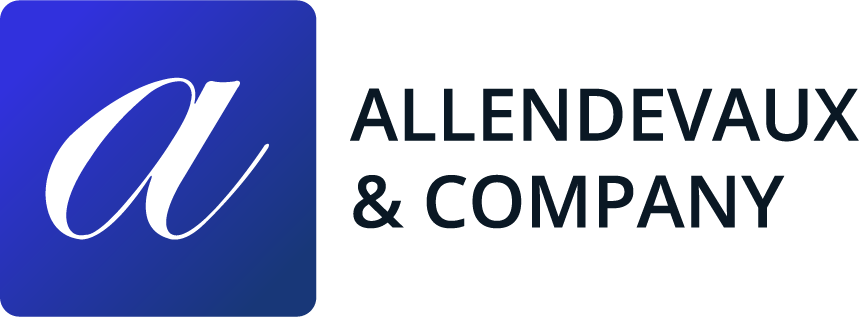Cybersecurity Compliance Guide for 2025
- bakhshishsingh
- Nov 3, 2025
- 3 min read
As cyber threats continue to evolve, organizations across the globe face growing pressure to meet complex compliance obligations. Compliance is no longer a checkbox exercise—it’s a strategic imperative that safeguards data, strengthens trust, and supports long-term resilience.
At Allendevaux & Company, we help businesses navigate this shifting regulatory landscape by aligning with leading global standards. Here’s what you need to know about the most critical cybersecurity frameworks shaping 2025.
1. ISO/IEC 27001 — Information Security Management System (ISMS)

ISO 27001 remains the gold standard for information security. It provides a comprehensive framework to manage risks, protect sensitive data, and continuously improve your organization’s security posture. Achieving ISO 27001 certification signals a firm commitment to information security and customer confidence.
2. NIS2 Directive (EU 2022/2555)

The European Union’s NIS2 Directive is redefining cybersecurity compliance for critical sectors. It introduces stricter security and reporting requirements for digital infrastructure, expanding accountability beyond IT teams. By aligning with NIS2, organizations can enhance resilience, reduce response times, and comply with the EU’s expanding cybersecurity obligations.
3. ISO/IEC 27017 — Cloud Security Controls

With cloud adoption accelerating, ISO 27017 offers a blueprint for securing cloud environments. It focuses on shared responsibility models, ensuring that both cloud providers and users maintain strong defenses. From access control to encryption policies, it sets the foundation for robust cloud security.
4. ISO/IEC 27018 — Cloud Privacy Controls

Where 27017 focuses on security, ISO 27018 emphasizes data privacy in the cloud. It establishes guidelines for safeguarding personally identifiable information (PII), promoting transparency and trust between service providers and customers. For privacy-first organizations, 27018 compliance is key to maintaining credibility and meeting GDPR expectations.
5. ISO/IEC 42001 — AI Management System

As AI systems become integral to business operations, ISO 42001 provides the first formal framework for managing AI responsibly. It outlines controls for governance, transparency, and risk mitigation—ensuring that AI technologies are ethical, explainable, and secure throughout their lifecycle.
6. ISO/IEC 27701 — Privacy Information Management System (PIMS)

Building on ISO 27001, this standard helps organizations operationalize privacy principles. It enables compliance with regulations like GDPR and CCPA by defining clear processes for data collection, retention, and consent management. For data-driven enterprises, ISO 27701 bridges the gap between security and privacy.
7. ISO/IEC 22301 — Business Continuity Management System (BCMS)

Disruptions are inevitable—but downtime doesn’t have to be. ISO 22301 helps organizations plan, prepare, and recover from crises. It focuses on operational resilience, enabling faster recovery from cyber incidents, natural disasters, or system failures.
8. PCI DSS — Payment Card Industry Data Security Standard

PCI DSS is vital for any organization handling credit card transactions. It ensures secure processing, storage, and transmission of payment data to prevent fraud and breaches. Compliance demonstrates that your organization takes financial security seriously—a must for e-commerce and financial service providers.
9. FedRAMP — Federal Risk and Authorization Management Program

For companies working with U.S. federal agencies, FedRAMP provides a unified security assessment framework. It standardizes cloud service evaluations, ensuring consistent and continuous monitoring across vendors.
10. ISO/IEC 27032 — Cybersecurity Management System

This framework provides overarching best practices for cybersecurity management. It promotes collaboration between governments, businesses, and individuals to strengthen the digital ecosystem against cyber threats.
The Bigger Picture: Compliance as a Competitive Advantage
Cybersecurity compliance is more than a regulatory requirement—it’s a signal of trust and professionalism. Organizations that proactively align with these standards not only reduce legal risks but also attract partnerships and customers who value data protection.
At Allendevaux & Company, we help organizations streamline compliance through:
Tailored gap assessments and readiness reviews
Policy creation and risk management programs
Continuous monitoring and internal audit support
By embedding compliance into your cybersecurity strategy, you ensure resilience, regulatory readiness, and customer confidence.
Take the Next Step Toward Compliance Excellence
Compliance doesn’t have to be complex. With the right guidance, your business can stay secure, compliant, and future-ready.
Allendevaux & Company — safeguarding your data, reputation, and resilience in a connected world.





Comments